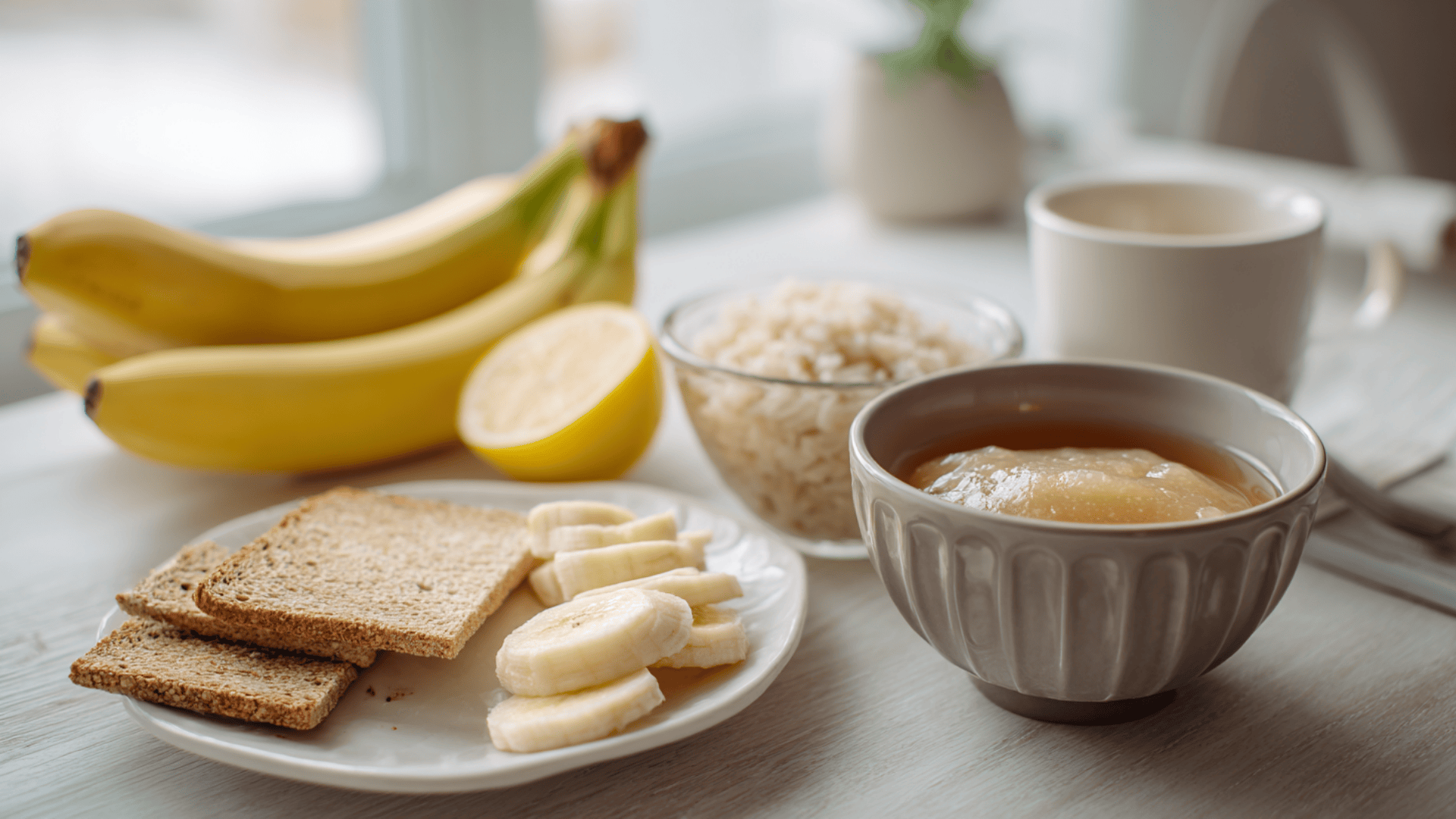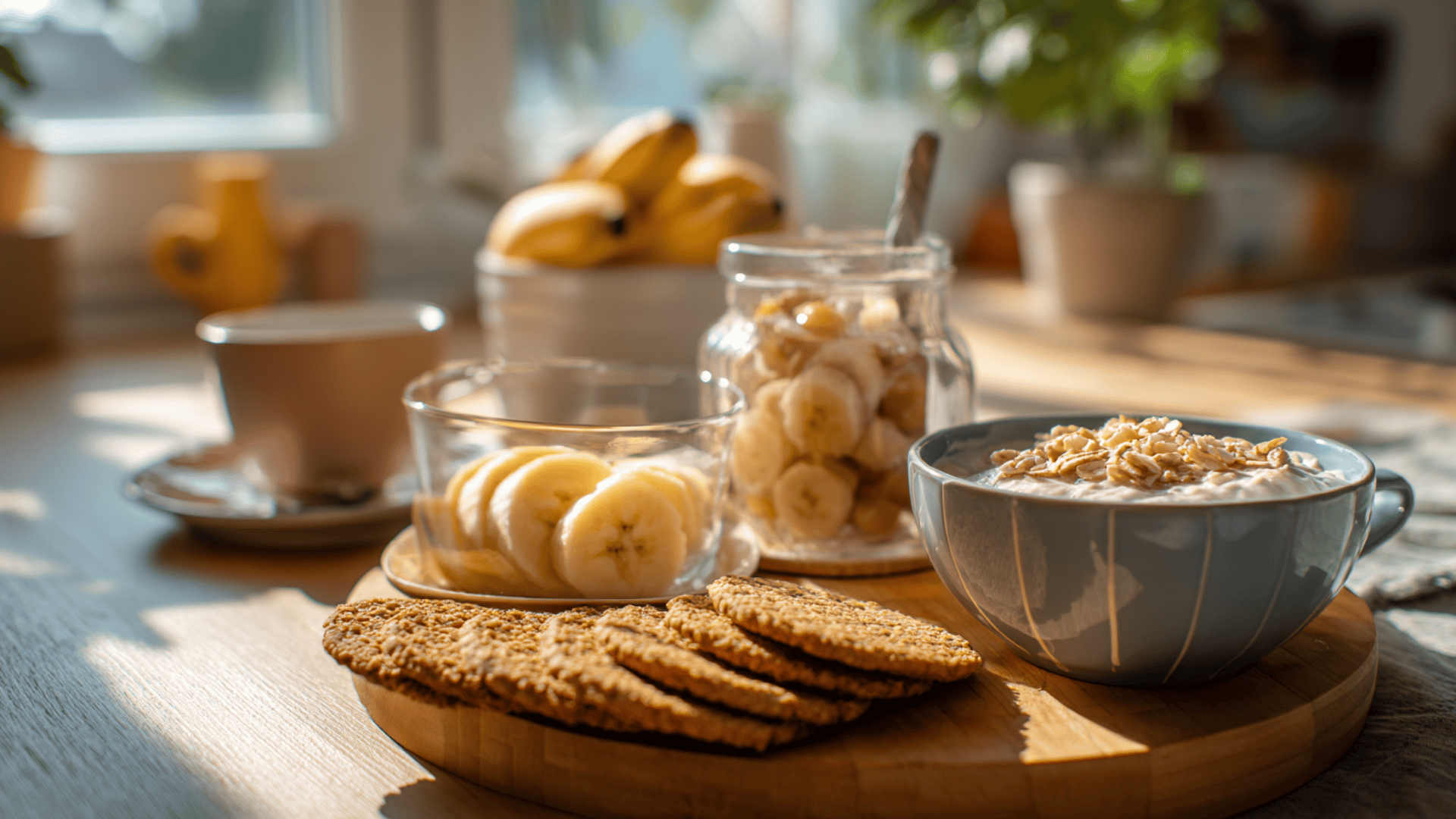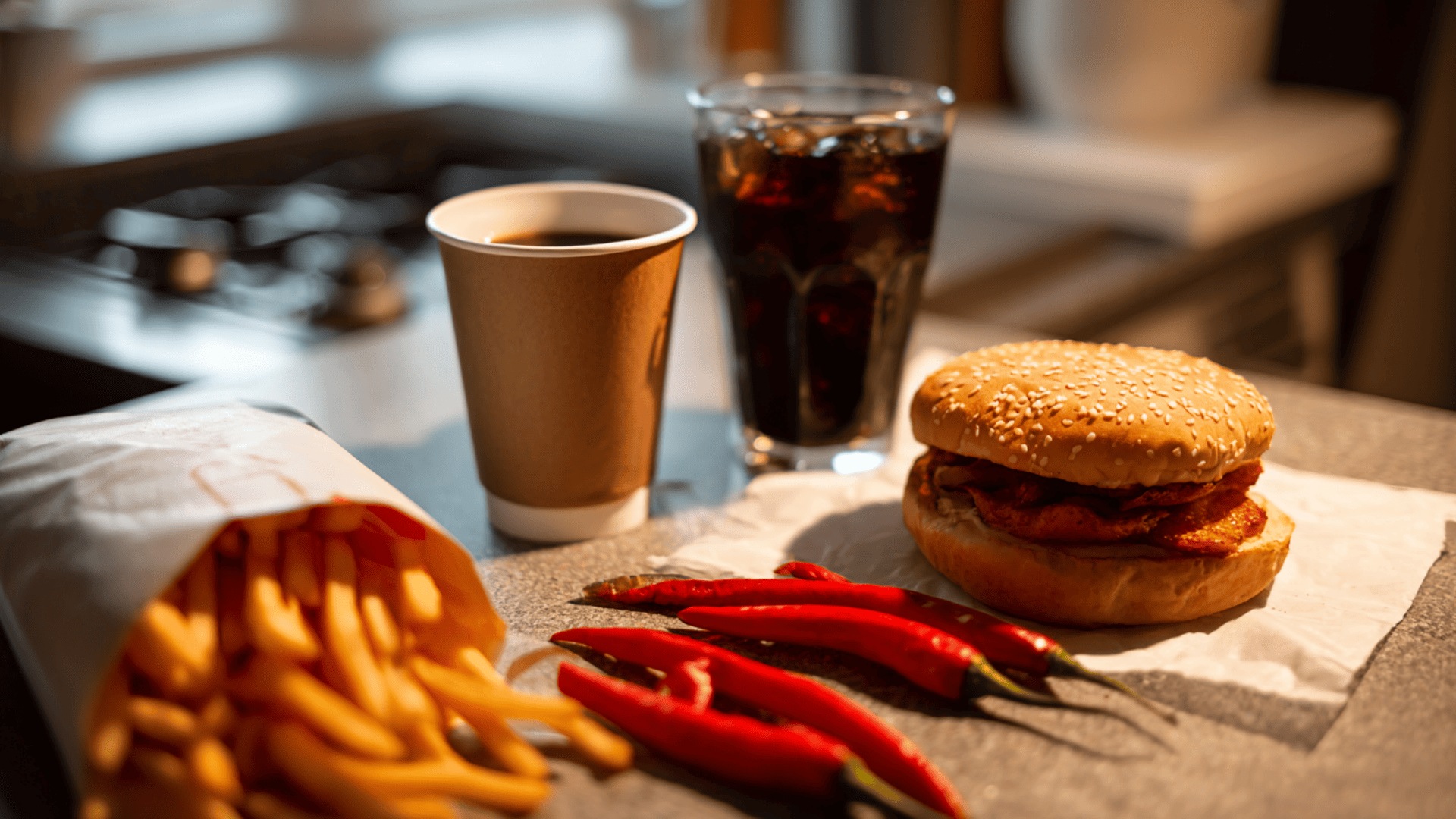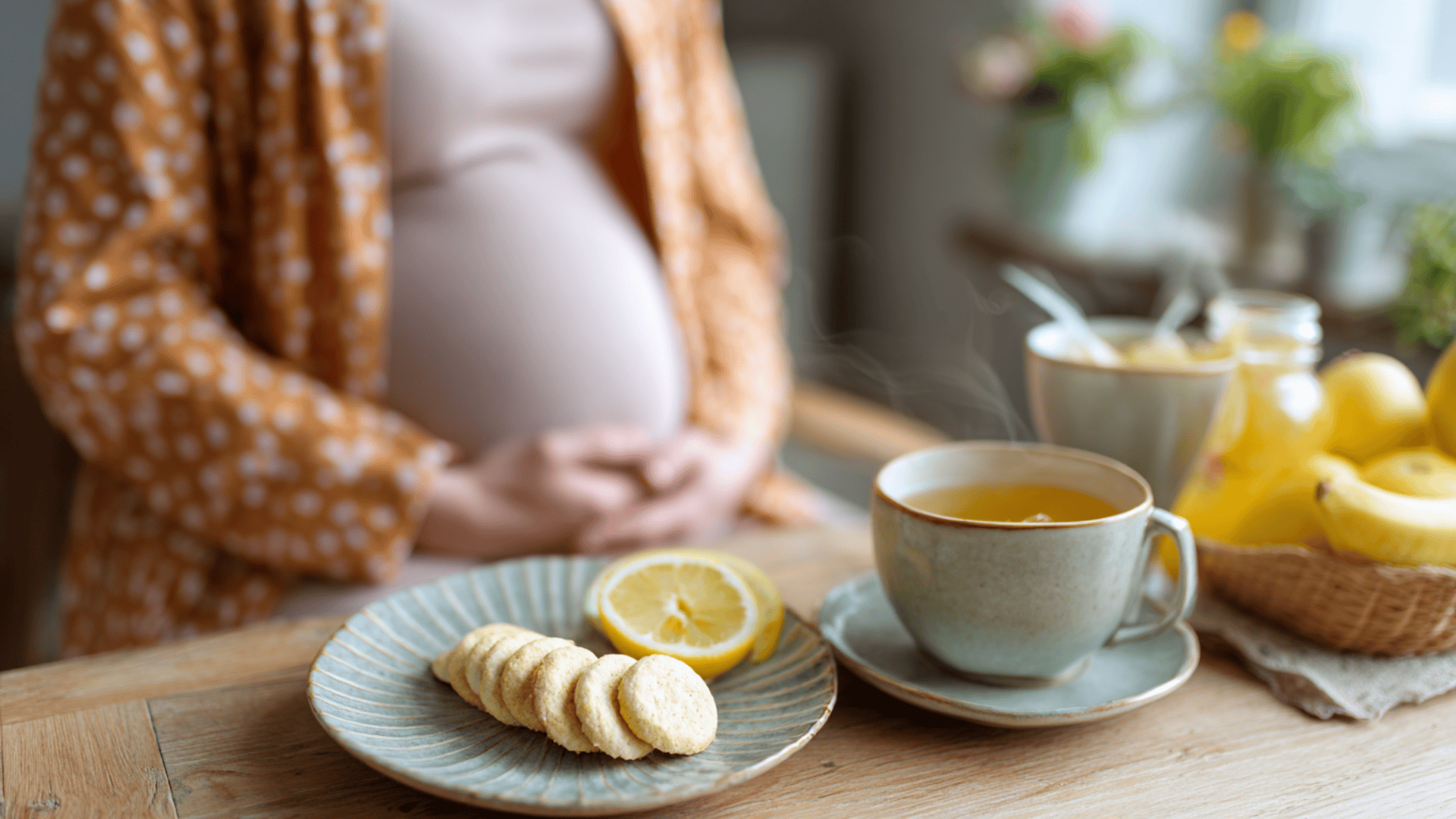Pregnancy can bring many changes, and for a lot of women, nausea is one of the earliest and most challenging. The queasy feeling can come at any time of day, making it tough to enjoy meals or stay energized.
While every pregnancy is different, there are safe ways to ease discomfort and feel more in control.
In this blog, I’ll share practical food choices, meal ideas, lifestyle tips, and guidance on when to seek medical help. You’ll also find answers to common questions and advice that makes day-to-day eating a little easier.
Why Nausea Happens in Pregnancy
Nausea is one of the most common pregnancy symptoms. It usually starts in the first trimester and often eases by the second, though for some it can last longer. While it can feel exhausting, in most cases its not harmful to you or your baby.
The main reason for nausea is the surge of pregnancy hormones, especially human chorionic gonadotropin (hCG) and estrogen. These sudden changes affect your stomach and digestive system, which is why certain foods or smells may suddenly feel overwhelming.
Other factors can also make nausea worse, such as skipping meals, low blood sugar in the morning, stress, fatigue, or sensitivity to strong odors.
For most people, nausea is a normal part of the body adjusting to pregnancy. But in some cases, it can be more severe and require medical care. I’ll cover those warning signs later in the blog.
Top Foods That Help Relieve Pregnancy Nausea

When nausea strikes, choosing the right foods can make a real difference. These options are gentle, easy to digest, and often bring quick relief.
1. Bland Foods (BRAT Diet)
Bananas, rice, applesauce, and toast are light on the stomach and easy to keep down. Crackers or dry cereal can also help, especially if you eat them before getting out of bed. Small, bland snacks can prevent your stomach from becoming empty, which often worsens nausea.
2. Hydrating Foods & Drinks
Clear broth, coconut water, or electrolyte drinks replace fluids and minerals lost through vomiting. Some find that sipping ice chips or flavored water is easier than plain water. Taking small sips throughout the day is better than drinking a lot at once.
3. Ginger-Based Options
Ginger is a natural nausea remedy that works for many pregnant women. Ginger tea, candies, or ginger ale made with real ginger may ease queasiness. If food-based options don’t help, ask your doctor about safe supplements.
4. Vitamin B6 Foods
Bananas, potatoes, eggs, and chicken are rich in vitamin B6, which is linked to reduced nausea. Eating small portions of these foods throughout the day may give steady relief. Some doctors also suggest B6 supplements if diet alone isn’t enough.
5. Protein Sources
Protein helps balance blood sugar and may reduce queasiness. Easy choices include yogurt, peanut butter, or beans. Pairing protein with a bland food, like peanut butter on toast, often feels more filling and easier to handle.
6. Sour & Salty Snacks
Lemonade, citrus slices, or pickles can sometimes cut through nausea. Pretzels or salted crackers may also help settle the stomach. Go with small amounts to see what feels right.
7. Cooling Comforts
Cold foods often feel easier than hot meals. Popsicles, smoothies, or chilled fruit keep you hydrated and refreshed. These lighter options are often more appealing when nothing else sounds good.
Morning Meal & Snack Ideas

Starting the day with the right foods can make nausea easier to handle. Small, light meals often work better than big ones.
Breakfast Foods that Fight Nausea During Pregnancy
Keep a few plain crackers or a piece of dry toast by your bed. Eating a small bite before you get up can settle your stomach and keep that empty feeling from triggering nausea.
Here are more gentle breakfast ideas that often help:
| Food Option | Why It Helps |
|---|---|
| Plain crackers or dry toast | Settles the stomach and prevents nausea from an empty stomach |
| Dry cereal (Cheerios, Rice Chex) | Light, crunchy, and easy to eat in small amounts |
| Oatmeal with banana slices | Gentle on digestion and provides steady energy |
| Plain bagel or English muffin | Mild flavor and filling without being heavy |
| Applesauce or stewed fruit | Soft texture and easy to tolerate early in the day |
| Yogurt with soft fruit | Adds protein and probiotics while staying light |
| Hard-boiled egg with toast | Simple protein source paired with a bland carb |
| Smoothie with banana and yogurt | Hydrating, cooling, and nutrient-rich |
| Rice cakes with cream cheese | Crisp yet light, with a little protein for balance |
| Cottage cheese with mild crackers | Protein-rich and easy to snack on in small bites |
| Warm broth with bread | Gentle, hydrating, and easy to digest |
These light and easy options can give you energy without overwhelming your stomach first thing in the morning.
Nausea-Friendly Meal Combos
Here are some easy options that tend to go down smoothly:
| Meal | Easy Options | Why It Helps |
|---|---|---|
| Breakfast | Oatmeal with banana slices, or scrambled eggs with dry toast | Gentle on the stomach, gives steady energy, and avoids strong smells |
| Lunch | Grilled chicken with rice and steamed veggies, or a baked potato with cheese | Light protein with simple carbs to keep you full without being heavy |
| Dinner | Plain pasta with light sauce, or broth-based soup with crackers | Easy to digest and warm comfort food that also helps with hydration |
| Snacks | Yogurt with berries, applesauce, pretzels, smoothies, or a popsicle | Quick bites that balance protein, fluids, and light flavors to fight nausea |
These foods are gentle, filling, and easy to prepare. Try mixing and matching so you don’t get bored, and eat small portions throughout the day instead of three large meals.
Foods and Drinks to Limit or Avoid

Some foods can make nausea worse, even if they seem harmless at first. Knowing what to limit can save you from extra discomfort.
- Strong-smelling foods: Strong odors from fried, spicy, or heavily seasoned dishes can trigger nausea quickly.
- Greasy or fried foods: These are harder to digest and may leave you feeling heavier or more unsettled.
- Very spicy foods: Some people can handle spice, but for many, it makes nausea and heartburn worse.
- Excessive caffeine: Too much coffee, tea, or energy drinks isn’t recommended in pregnancy, and they can irritate your stomach.
- Sugary sodas: Drinks like cola may seem like a quick fix, but they often make nausea worse in the long run. Coke is not considered a safe or reliable remedy for pregnancy nausea.
Everyone reacts differently, so the key is paying attention to your own triggers. If a certain food or smell sets you off, it’s best to avoid it for now.
Lifestyle Tips to Reduce Nausea
Along with the right foods, small daily habits can make nausea easier to manage. Simple changes in your routine often help keep queasiness under control.
Eating small, frequent meals works better than large portions. Spacing food throughout the day keeps your stomach from getting too full or too empty, both of which can trigger nausea.
Rest is just as important. Feeling tired often makes nausea worse, so short naps or an earlier bedtime can give your body the break it needs.
Staying hydrated also matters. Sip water, broth, or flavored drinks slowly throughout the day. Small sips are usually easier to tolerate than drinking a lot at once.
Try not to let your stomach go empty. Keeping crackers, toast, or fruit within reach helps you have something light to eat when you need it.
These small adjustments add up and can make daily nausea much easier to handle.
When to Seek Medical Help
Most nausea in pregnancy is normal, but there are times when it can be a sign of something more serious. Knowing when to call your doctor helps keep you and your baby safe.
One condition to watch for is hyperemesis gravidarum. This is a severe form of morning sickness that causes constant vomiting and makes it hard to keep any food or fluids down. It can lead to weight loss, dehydration, and a lack of important nutrients.
You should reach out to your doctor right away if:
- You can’t keep any food or liquids down.
- Vomiting happens many times a day.
- You notice weight loss during pregnancy.
- You see signs of dehydration, such as dark urine, dizziness, or a racing heartbeat.
Getting medical care early can prevent complications. There are safe treatments available, and your doctor can guide you toward options that work best for you and your baby.
Wrapping Up
Pregnancy nausea can feel overwhelming, but it’s also a reminder of the incredible changes happening in your body. The good news is that relief often comes from simple shifts in how you eat, drink, and care for yourself.
What works for one person may not work for another, so it helps to experiment with small adjustments until you find your rhythm.
Listening to your body’s signals is just as important as choosing the right foods that fight nausea during pregnancy. With patience and gentle care, the tough days will pass.
Try some of the foods and share your experience in the comments; your tips may help someone else, too!
Frequently Asked Questions
Should I force myself to eat when nauseous while pregnant?
You shouldn’t force big meals, but small bites help. Dry toast, crackers, or fruit every few hours keeps your stomach from getting too empty.
What is the first thing a pregnant woman should eat in the morning?
Something light and bland works best. Keep crackers or dry cereal by your bed to nibble on before standing up. This often eases morning nausea.
Best juice for nausea during pregnancy?
Tart and light juices like lemonade or diluted apple juice may help. Avoid very sweet or acidic drinks, since they can make nausea worse for some.










